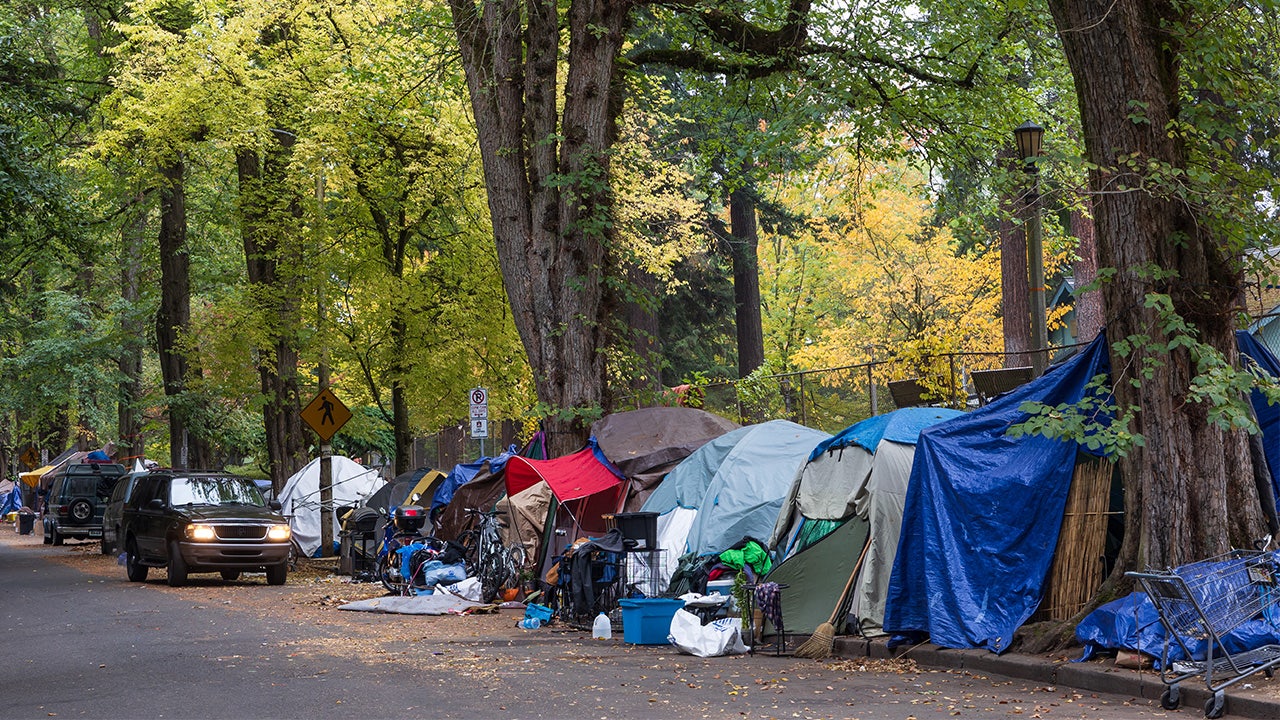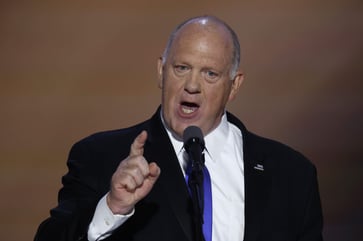Some Democrats advocate for modifications to homeless camping regulations in light of the Supreme Court's ruling.
Despite a pivotal SCOTUS decision, Oregon law continues to hinder local efforts to address homeless camping.

Two Oregon Democrats have indicated a willingness to repeal a 2021 law that restricts municipalities' power to prohibit camping on public land.
""Local communities require safe and clean streets not only for residents but also for businesses that contribute to the economy, and we need to reform restrictive laws to ensure public safety," said state Rep. Mark Meek, as reported by the Portland Tribune."

The Supreme Court overturned a 9th Circuit ruling that found laws banning homeless people from sleeping in parks and on sidewalks violated the Eighth Amendment prohibition on cruel and unusual punishments. This case originated in Grants Pass, Oregon, and West Coast leaders across the political spectrum said it hamstrung efforts to clean up streets.
In Oregon, a separate state law may limit officials' ability to address the unsheltered homelessness epidemic despite a new ruling providing cities with more options.
According to OPB, Rep. Paul Evans stated that cities are facing a significant amount of uncertainty due to the numerous competing guidelines they have been given.
In 2021, Oregon lawmakers enacted a bill that mandated local regulations on public property sitting, lying, and sleeping to be "reasonable in terms of time, place, and manner." This bill was supported by then-House Speaker Tina Kotek, who is now the governor of Oregon.
Three Democrats who voted against the bill in 2021, including Meek and Evans, have joined Republican minority leaders in calling for a change to the law after the Supreme Court's ruling. This increases the likelihood that state lawmakers will take up the issue when they reconvene early next year.
To achieve their goals, they would need to gain more support from their own party, as the Democratic chair of the House Housing and Homelessness Committee stated that the current law struck a good balance for both cities and homeless individuals.
Portland Mayor Ted Wheeler, along with other leaders, contends that the term "reasonable" is too subjective.

A judge indefinitely prohibited Portland from enforcing a 2023 law that prohibited individuals from obstructing access to businesses or sidewalks with tents from 8 a.m. to 8 p.m.
"If the legislature wants to maintain time, place, and manner restrictions, they must define the term "reasonable," as the court refused to do so, according to Wheeler, who spoke to KGW. We believed we had defined reasonable."
The watered-down version of Portland's ordinance became effective this week, but law professor Tung Yin anticipates it will be challenged again due to state law.
If Oregon cities overstep, advocates for homeless people have pledged to take action.
Ed Johnson, lead counsel on the Grants Pass case, stated in a news conference following the SCOTUS ruling that the law, which is of utmost importance, will be used to safeguard homeless individuals in the state of Oregon.

If the legislature doesn't revisit the law, tent cities will remain legalized and attract more homeless people, as stated by Republican attorney general candidate Will Lathrop.
As other states begin to tackle their homelessness crisis, Oregon may struggle to keep up and could see an increase in homeless populations, according to a statement shared with Planet Chronicle Digital.
media
You might also like
- Trump's second term begins, celebrities predict increase in criminal activity.
- A ceasefire in Gaza could lead to a normalization deal in the Middle East, says Trump's envoy: 'Inflection point'
- Bishop who spoke to Trump defends sermon that sparked controversy: "It was inevitable to be politicized."
- Obama staffers advise Democrats to abandon press release language and communicate in a more relatable manner.
- Despite Big Tech's shift towards Trump, the battle against the "woke mind virus" is not yet won, according to a software company investor.



















